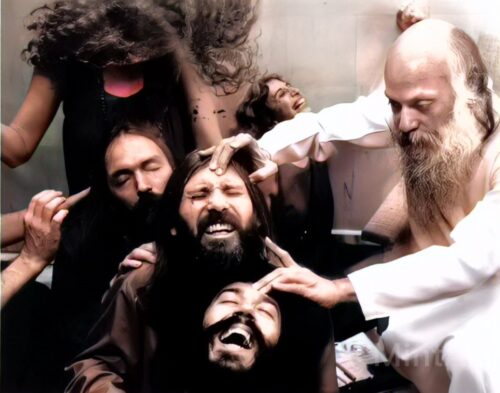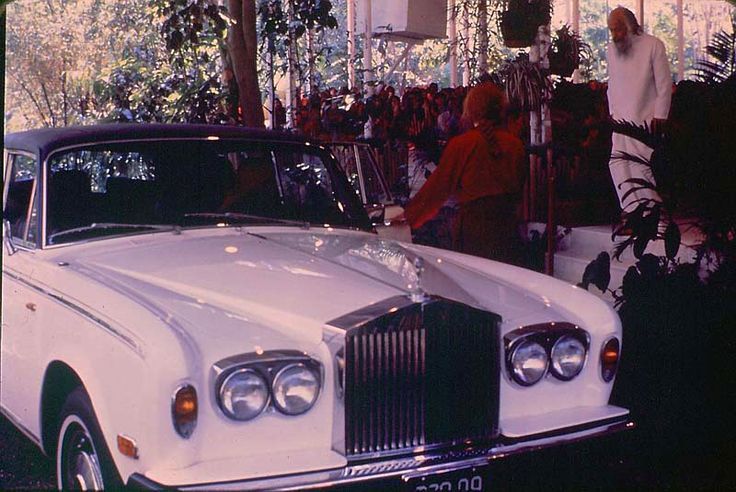OSHO
The name Osho evokes a myriad of emotions, perceptions, and controversies. From his teachings on spirituality to his unorthodox lifestyle, Osho, also known as Bhagwan Shree Rajneesh, remains a figure of intrigue and fascination. Among the many facets of his persona lies the hypothetical scenario of his potential property acquisitions in the United States of America. In this essay, we delve into the enigmatic world of Osho, exploring the untamed spirit that characterized his life and pondering the possibility of him acquiring the entire USA.
Osho, with his flowing robes and flowing discourse, captivated followers worldwide. His teachings, which blended Eastern mysticism with Western psychology, attracted a diverse array of seekers seeking enlightenment in a rapidly changing world. Yet, it was not only his spiritual teachings that garnered attention but also his unorthodox lifestyle and bold visions.
At the heart of the hypothetical scenario lies the concept of untamedness. Osho embodied the untamed spirit—an individual who refused to be confined by societal norms or conventional wisdom. His teachings encouraged followers to break free from the shackles of conditioning and embrace their true nature. In this sense, Osho’s untamedness symbolized a radical departure from the status quo, a bold embrace of freedom and individuality.
As we contemplate Osho’s potential property acquisitions in the USA, we must first understand the context in which such a scenario might unfold. Osho’s vision transcended traditional boundaries, encompassing not only spiritual enlightenment but also societal transformation. His ashrams, scattered across the globe, served as hubs of spiritual exploration and communal living. However, it was his vision of a utopian society that truly set him apart.
Imagine, if you will, Osho’s untamed spirit unleashed upon the vast landscape of America. With his charismatic presence and devoted followers, could he have acquired significant swathes of land, transforming them into centers of spiritual and philosophical inquiry? The notion may seem far-fetched, but it prompts us to consider the untapped potential of Osho’s vision and influence.

In contemplating Osho’s hypothetical property empire, we must also reckon with the complexities of his persona. Osho was not without controversy, and his life was marked by numerous legal battles and public scrutiny. His teachings on sexuality, for example, challenged traditional norms and sparked heated debates. Likewise, his commune in Oregon, known as Rajneeshpuram, became embroiled in legal disputes and allegations of criminal activity.
Yet, it is precisely these complexities that make the hypothetical scenario all the more intriguing. Osho’s untamed spirit was not confined by societal expectations or legal constraints. He operated outside the bounds of conventional morality, challenging followers to question their deeply held beliefs and assumptions. In this sense, Osho’s hypothetical property acquisitions in the USA represent a radical reimagining of social and cultural norms.
To envision Osho as the owner of vast swaths of American land is to confront the limits of our imagination. It requires us to set aside preconceived notions and embrace the untamed spirit of possibility. What if Osho’s vision of a utopian society had been realized on a grand scale? What if his teachings had permeated every corner of American society, transforming hearts and minds along the way?
Of course, the hypothetical scenario raises as many questions as it answers. Would Osho’s untamed spirit have clashed with the established powers of American society? Would his vision of communal living and spiritual exploration have found fertile ground in the land of the free? And perhaps most importantly, would Osho himself have remained true to his untamed spirit, or would he have been tamed by the vastness of his own ambitions?

In the end, the untamedness of Osho’s spirit remains a source of fascination and inspiration. His teachings continue to resonate with seekers around the world, reminding us to question authority, embrace freedom, and live life to the fullest. Whether or not Osho could have acquired the entire USA is ultimately beside the point. What matters is the untamed spirit that he embodied—a spirit that dares to dream, dares to explore, and dares to imagine a world beyond the confines of convention.
The hypothetical scenario of Osho acquiring the entire USA invites us to contemplate the untamedness of his spirit and the limitless potential of his vision. While the idea may seem far-fetched, it prompts us to question our assumptions and embrace the untamed spirit within each of us. In the end, it is not the acquisition of land that defines Osho’s legacy, but the untamedness of his spirit and the enduring impact of his teachings on the world.

